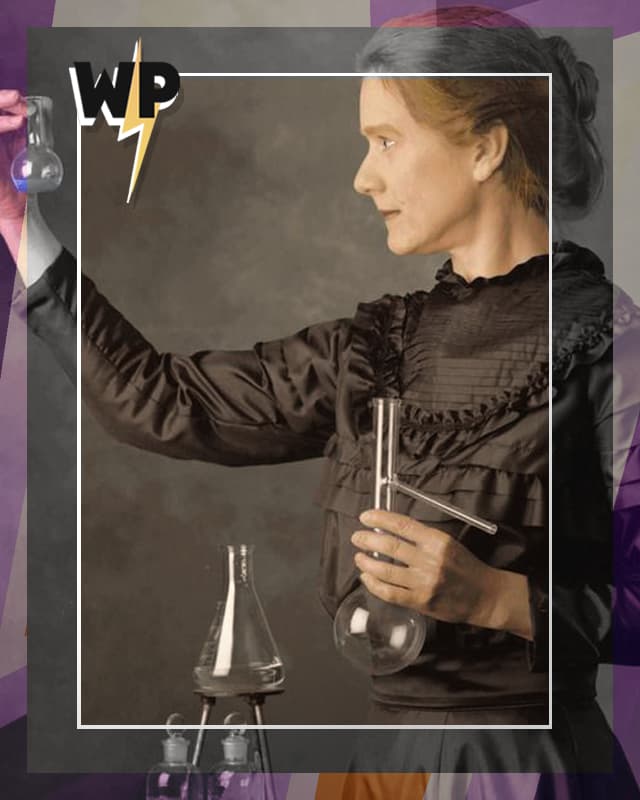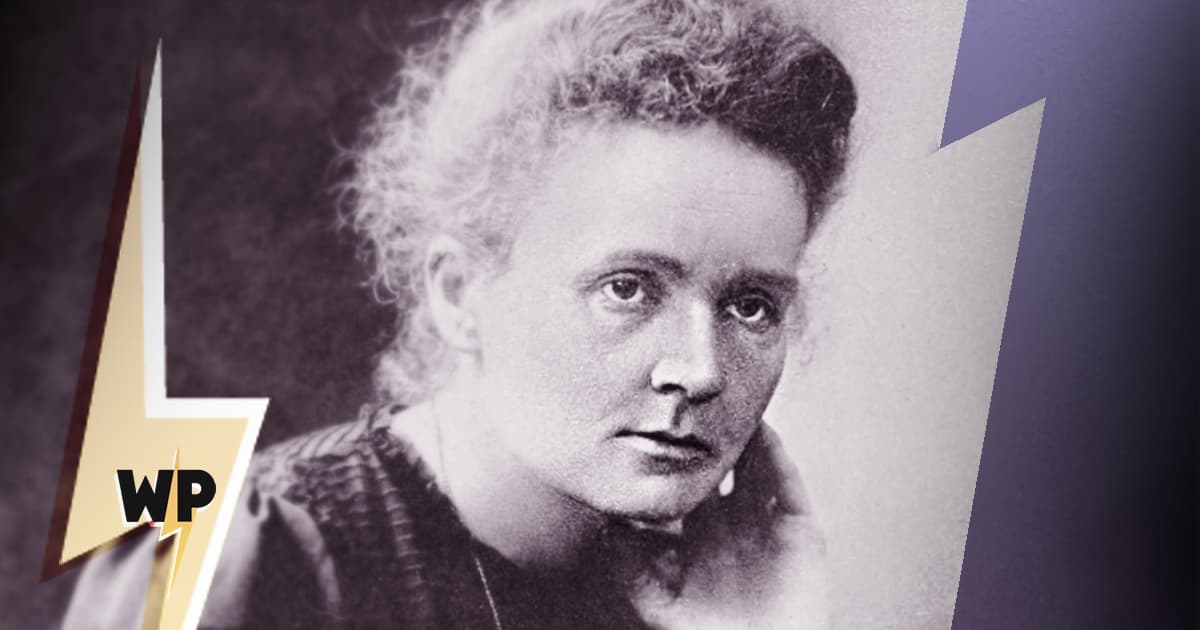Although known for her scientific achievements, Marie Sklodowska-Curie's ideas proved revolutionary beyond the laboratory. For example, Ms Curie became the first woman in history to win the Nobel Prize, and she did so at the beginning of the 20th century when equal rights and the absence of discrimination toward women was something most women only dreamed of. Together with her husband, she discovered the elements polonium and radium and voluntarily shared her findings publicly rather than choosing to pursue a patent. In addition to his discoveries, Curie used her network and organization skills during the First World War, helping to equip hundreds of hospitals and ambulances to aid wounded soldiers.

Even today, the life story of this remarkable scientist inspires millions of people, and justifiably so. Women seeking to achieve a challenging goal or form a full and healthy personality can look to Marie Curie for inspiration and lessons, some of which we will mention below.
1. Do not Let Obstacles Stop You From Achieving Your Dreams
From an early age, Marie Curie knew what she wanted. With a focused vision of engaging in a life of science, she could avoid being stopped from achieving her dreams by either poverty or the then-common idea that a woman's place was exclusively in the household.
Aiding in her ability to envision a scientific life was the future Nobel laureate's father, a physics teacher. It was clear early on that Marie had inherited her father's scientific leanings. Curie always displayed a passion for learning and graduated from school with honours.
The situation was different during the period of higher education. Their family was large and poor, the mother died of tuberculosis, and the father had to feed and raise five children by himself. Marie and her sister Bronislava agreed to take turns studying: first, one studies, and the other works and pays for education, and then they do conversely.
Women were forbidden to study at the University of Warsaw. This restriction did not stop the girl - thus, she ended up in France, in the Sorbonne, where she later became the first female teacher. Then, a fateful meeting with her future husband, Pierre Curie, took place.
2. Do Not Allow the Doubts of Other Get in the Way
The main difficulties for Marie were still ahead. Together with her husband, they discovered a new element - radium. But other scientists refused to believe it. There was only one way to convince them: to extract a small part of radium from uranium ore. It was incredibly difficult and required a high-quality laboratory approach. Uranium ore contains a very small percentage of radium - needed tons of uranium ore to obtain 0.1 gram of this element on this task for four years in unbearable conditions. It was a dilapidated shed with no heating or ventilation, where it was unbearably cold in the winter and suffocating in the summer. In addition, it was tough physical work under the influence of radiation and dangerous fumes. Marie and Pierre turned down several lucrative offers for the sake of the goal, including at the University of Geneva.
Everyone laughed at them, and the couple had moments of despair and frustration. However, it was worth it. For the discovery of radium and polonium in 1903, Marie, her husband, and the pioneer of radioactivity, Antoine Henri Becquerel, received the Nobel Prize in Physics. Marie became the first woman in history to receive this award.
3. Pay No Attention to Insults or Discrimination; Keep Pressing Forward
Being a female scientist in the male world of science at the beginning of the 20th century is another challenge. Being female was not a problem for Marie, as she was confident in her abilities and intentions. Despite this, the woman often became the centre of ridicule, and misogynistic and sexist comments, which she did not pay attention to because she understood that they came from individuals who were not confident in themselves.
It was not easy in the discussions, but Marie persevered. She was brave and cool-headed and proved to the whole world that she was not just an assistant to her smart husband. In 1911, the woman received her own Nobel Prize in Chemistry for her outstanding contributions to research into the properties of radium and polonium.

4. Immigrants Can Become Massive Successes
Both the Poles and the French consider Marie Sklodowska-Curie to be their own. Born in Poland, the woman was devoted to the Motherland until the end of her days, helping to fight for its independence and restoring the country.
At the same time, the French consider the Nobel laureate one of their national heroes, along with Jean Moulin and Jeanne d'Arc. At the beginning of the First World War, the woman approached the French government with a detailed plan to create mobile radiological laboratories and train doctors and technicians. Her proposal was approved, and Marie began to train the staff herself, working on the development of field medicine. At the war's end, 300 mobile radiological laboratories worked in the country, saving thousands of lives.
5. Do not give up your family for the sake of your career.
Judging by the photo, Marie was not very attractive in her youth and loved science more than men. However, she understood that being together with someone would be easier to achieve much more.
The love story with the French scientist Pierre is not just a fire of passion but a partnership of two scientists. They supported each other in extremely difficult moments and were truly friends. However, their life was not completely cloudless. In 1903, during the fifth month of pregnancy, Marie gave birth to a girl who did not survive. Even being pregnant, the scientist did not stop working in inhumane conditions with dangerous substances for the sake of the goal. One could say that the woman was almost possessed. But she continued her family, and one of the two daughters - Irene Joliot-Curie - also became a Nobel laureate in chemistry, continuing her parents' work.
Marie lost her husband due to a tragic accident. Later the woman will say: "There is no need to lead such an unnatural life as I have led. All I wish for women and young girls is simple family life and a job that interests them."